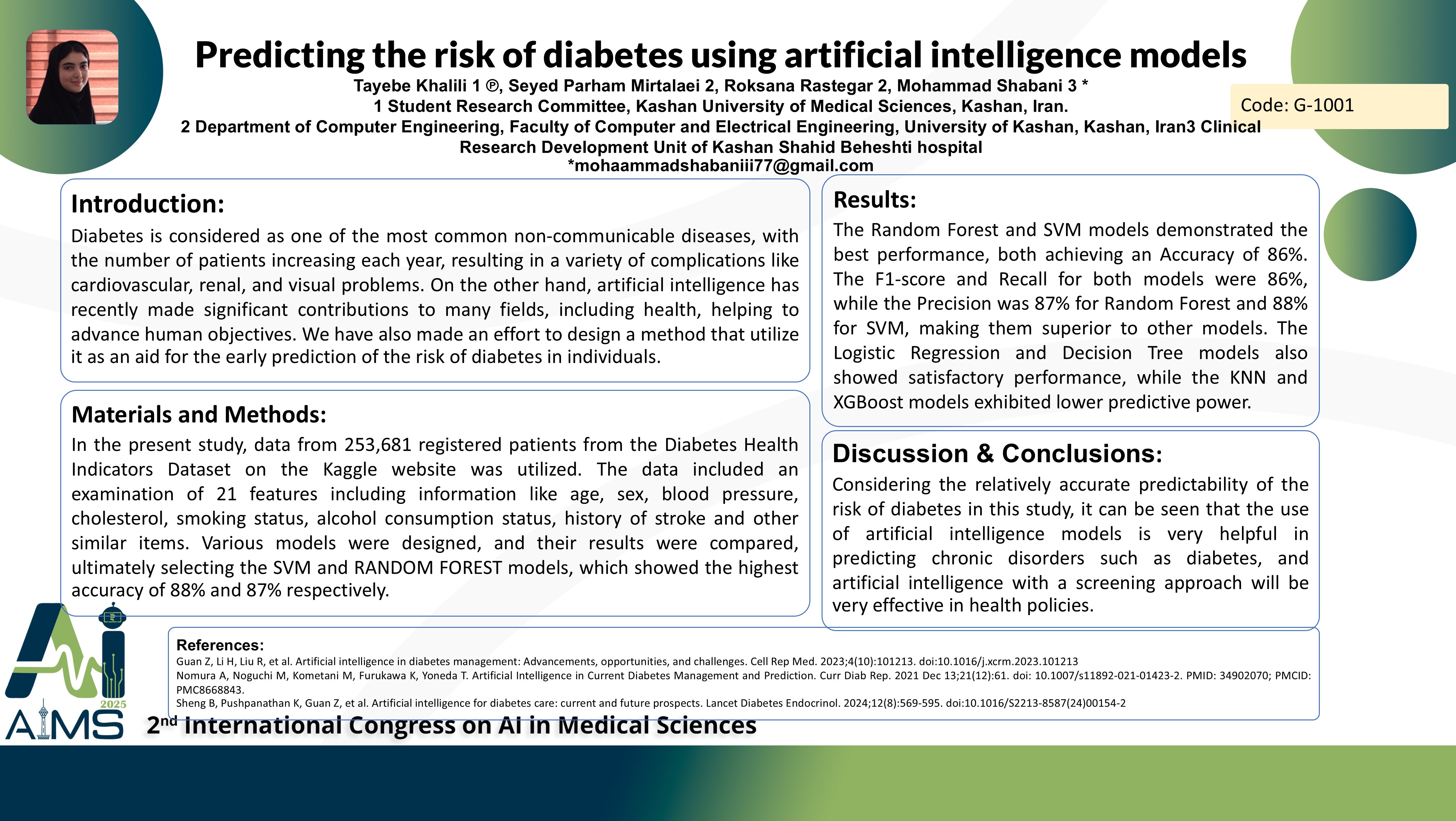پیش بینی ریسک ابتلا به دیابت با استفاده از مدل های هوش مصنوعی
کد: G-1749
نویسندگان: Tayebe Khalili ℗, Seyed Parham Mirtalaei, Roksana Rastegar, Mohammad Shabani *
زمان بندی: زمان بندی نشده!
برچسب: سیستم های تصمیم یار بالینی
دانلود: دانلود پوستر
خلاصه مقاله:
خلاصه مقاله
Background and aims: Diabetes is considered as one of the most common non-communicable diseases, with the number of patients increasing each year, resulting in a variety of complications like cardiovascular, renal, and visual problems. On the other hand, artificial intelligence has recently made significant contributions to many fields, including health, helping to advance human objectives. We have also made an effort to design a method that utilize it as an aid for the early prediction of the risk of diabetes in individuals. Method: In the present study, data from 253,681 registered patients from the Diabetes Health Indicators Dataset on the Kaggle website was utilized. The data included an examination of 21 features including information like age, sex, blood pressure, cholesterol, smoking status, alcohol consumption status, history of stroke and other similar items. Various models were designed, and their results were compared, ultimately selecting the SVM and RANDOM FOREST models, which showed the highest accuracy of 88% and 87% respectively. Results: The Random Forest and SVM models demonstrated the best performance, both achieving an Accuracy of 86%. The F1-score and Recall for both models were 86%, while the Precision was 87% for Random Forest and 88% for SVM, making them superior to other models. The Logistic Regression and Decision Tree models also showed satisfactory performance, while the KNN and XGBoost models exhibited lower predictive power. Conclusion: Considering the relatively accurate predictability of the risk of diabetes in this study, it can be seen that the use of artificial intelligence models is very helpful in predicting chronic disorders such as diabetes, and artificial intelligence with a screening approach will be very effective in health policies.
کلمات کلیدی
Diabetes, Artificial Intelligence, Random Forest, SVM
